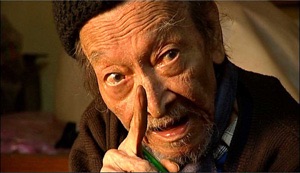Le Silence des rizières
-
Réalisé par Fleur Albert • Écrit par Fleur Albert
-
France • 2004 • 90 minutes • DV Cam • Couleur et Noir & Blanc
- Réalisation :
Fleur Albert - Écriture :
Fleur Albert - Musique originale :
Wim Mertens, Jeff Rian
- Production (structure) :
La Huit Production - Diffuseur :
TV 10 Angers - Participation :
Centre Images (région Centre), CNC, Procirep - Ayant droit :
La Huit Production
- N° ISAN :
ISAN 0000-0001-B29E-0000-0-0000-0000-3
Résumé
Maï est née en Indochine, le 3 avril 1954, quelque part dans la jungle du Nord Vietnam, occupée par les troupes Vietminhs. Au même moment, les dernières illusions du corps expéditionnaire Français se consument à Dien Bien Phu.
Sur sa carte d’identité, Maï est pourtant née officiellement à Prague. Sa mère, Thuy Kham, est vietnamienne, actrice et chanteuse de l’armée vietminh. Son père, André, est français, et ancien résistant. En tant que cadre du parti communiste, homme de confiance et grand militant, il est envoyé par le Comité central en Indochine pour lutter aux côtés d’Ho-Chi-Minh.
La famille ne rentre en France qu’en 1960, après 6 ans de clandestinité passés dans les pays de l’Est. Depuis son adolescence, Maï ressasse le récit de son père qui encore aujourd’hui préfère rester silencieux sur sa mission en Indochine. Aux confins du déracinement de Maï et des souvenirs de sa mère lors d’un voyage au Vietnam, nous retrouvons les combattants de l’ombre liés à la lutte contre cette "sale guerre"...
Télescopage entre histoire collective et destins individuels, il s’agit de revisiter cette guerre oubliée à travers ceux qui, comme le père de Maï, croyaient à l’Internationale communiste. Les destins mêlés concentrent sous un jour cru ce que furent les enjeux d’une guerre de décolonisation et d’une indépendance nationale, en pleine guerre froide. Que reste-il aujourd’hui de cet héritage ?
Mai was born in Indochina, on April 3, 1954 somewhere in the Vietbac jungle in the middle of the Vietminh underground and meanwhile the very last illusions of the French army in Dien Bien Phu.
Yet, on her identity papers, she officially came into the world in Prague. Thuy Kham, her mother is a Vietnamese actress and Vietminh officer. Her father, André is French, and was in the French Resistance during World War II. An executive in the French Communist Party, he was sent to Indochina in 1951 by the Central Committee to fight alongside Ho Chi Minh against the French army. At the end of the war, "André" and his family were exfiltrated to Eastern Europe, where they lived underground for seven years before returning to France in 1958. It wasn't until much later that Mai learned about her origins and the nature of her father's engagement.
A trip of Mai along with her mother in Vietnam make us better understand the struggle of the combatants behind the scene against this "dirty war". Between collective History and personal destiny, the film offers a questioning about the private consequences of an episode of History through people like
Mai’s father who believed strongly in the Communist International. It introduces us also to the stakes of decolonization and independence during the cold war? What is left from this legacy?
Mot(s)-clé(s) thématique(s)
Comment avoir accès au film ?
- Édition DVD
-
Accès VOD
- Il n'existe pas d'accès en VOD à notre connaissance
- Diffusion non commerciale / Consultation




